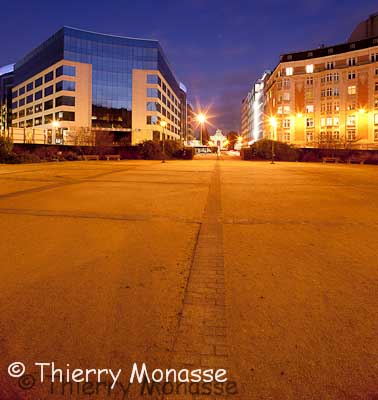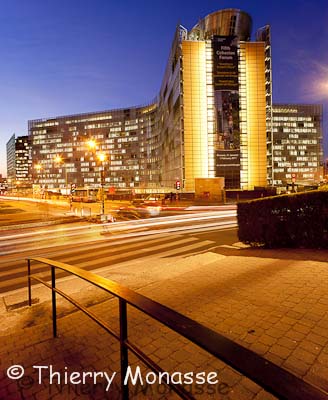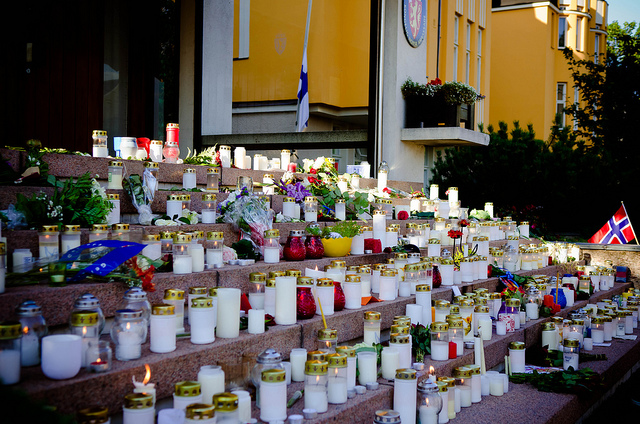The European diplomatic service, a baby just waiting to grow

(BRUSSELS2 to Dublin) The work of revising the structures of the EEAS has begun. EU Foreign Ministers looked at the newborn's cradle: 2 years and a few months already! And expressed some ideas to help him overcome his first toothaches (a detailed presentation of the various non-papers submitted to this council is included in the B2 club). Ideas put forward in the light of acquired experience or taken up from initial suggestions which had not been retained.
A two-year-old baby...
However, we must be careful not to take these criticisms at face value. The same people who are calling for simplification and clarification today (ministers of member states, deputies, experts, etc.) are those who have laid down multiple conditions, making the edifice to be built more complex and more fragile today. Some might have the honesty to say "we were wrong".
In a way, it reminds me of the A400M design where one wants an aircraft that allows loading with one person, another an aircraft that allows boarding of special forces, the third wants to go the as far as possible and everyone wants it to be as cheap as possible and delivered as quickly as possible. For the European Diplomatic Service, it's a bit the same.
However, we must not hide it either, there are a few problems, I will only mention a few... But I will also take care not to mention - it must be emphasized - the European diplomatic service remains a superb machine, an engine that only needs to be efficient as long as it is freed from certain constraints, a baby that only wants to grow. So let's not throw the two-year-old baby out with the bathwater!
Some suggestions / feedback
• Rearrange the bazaar
The structure of the EEAS is a bit like a big bazaar which results more from a pile of conditions imposed by each and every one (the European Parliament, the European Commission, the Member States) to which the High Representative was unable/not were resisted. Added to this were affinities, personal recruitments which shook up the structure of the SEAE. The structure at the top of the building must therefore be refined and simplified.
• The High Representative: tasks to be delegated
In the same way much commented on the personality of C. Ashton. No need to come back to it. But there is one point that needs introspection. The High Representative cannot do everything. He/She must delegate. Is it to a Deputy High Representative (as envisaged by the High Representative herself) or to a Commissioner delegated to certain policies (for example for the neighborhood or for defense issues)? Or is it at the level of the general secretary and his deputies who should exercise this role? Or both? Never mind. The High Representative does not, for example, have to constantly intervene in the recruitment of all diplomats. Likewise, she cannot, she must not see all the mail that goes out. There is work for several people, provided that the distribution of tasks is fixed, in a clear and precise manner. And that the responsibility is full and whole.
• The structures of European Defense policy: to be chiselled
The organization of crisis management structures - which manage common defense operations - can easily be reviewed and must be reviewed. With a clearly identified person at its head, at political level, able to ensure representation at the highest level, before the European Parliament or even at ministerial level. And then the structures must be organized logically: strategic planning, then operational planning and command of the operation. The notion of "crisis prevention" like the financial instruments - the instrument of stability - must be part of this whole.
• Staff or high salaries: you have to choose
The number of diplomats earning a salary of more than 10.000 euros must decrease. I know: I'm not going to make friends. But it is impossible in these times of budgetary crisis to continue to have a structure that includes a large number of staff at levels around 10.000 euros or more, while there is a severe shortage of staff at intermediate or junior levels. This staff is just as necessary. With a constant envelope, the EEAS could thus open new delegations, make up for its lack of posts (which are not due to a lack of applications but to a lack of recruitment) and thus be more efficient for the same cost. I don't believe that the value of personalities is measured by the number of 000 that appears on their payslip.
• The Commission/EEAS fight is over: redefining competences
Here again the tangle of skills is detrimental. The Commission's desire not to be dispossessed played a role. The institutional reaction - almost physiological - is quite normal. But the logic of the Lisbon Treaty was quite different. We must now return to the beginnings: bringing together all the external instruments under a single authority. There cannot be on one side a person who defines a policy and on the other a person who disposes of the financial instrument with its own rules. Imagine in France, Bercy deciding on a day-to-day basis the allocation of the Defense or Foreign Affairs budget.
A great engine under the hood
This revision work will necessarily point out what is not working. However, it should not be forgotten that the EU has a formidable engine under the hood in the EEAS. This can sometimes struggle to start or sputter (like an engine when it's very cold) but running at full throttle, it can run efficiently.
With its 140 delegations around the world, Europe has a network that is all the more irreplaceable as each Member State will be tempted to close ranks in its diplomatic network. Who today has an embassy in almost all African, American and Asian countries? Who has within the same administration high-level soldiers, specialists in aeronautical logistics as well as the finest knowledge of jihadist movements, the Balkans or Iranian nuclear power... and public procurement? Where to meet under the same hat, in the same building, mili(ar)s, diplo(mate)s, project managers.
Over the past few years, I have met many of them, I have often been delighted by their talent, their knowledge of files, their finesse of approach. This engine does not require today that one makes him pass a speed of more, to be unbridled. But this must be done gently. The European diplomatic service needs - as with any human structure - a minimum of stability and predictability.



